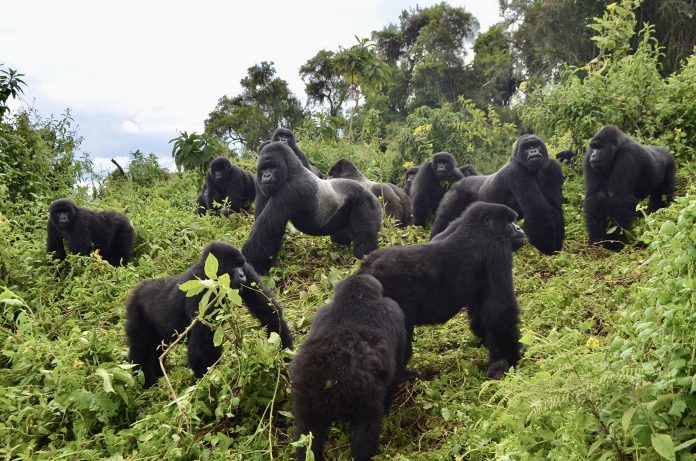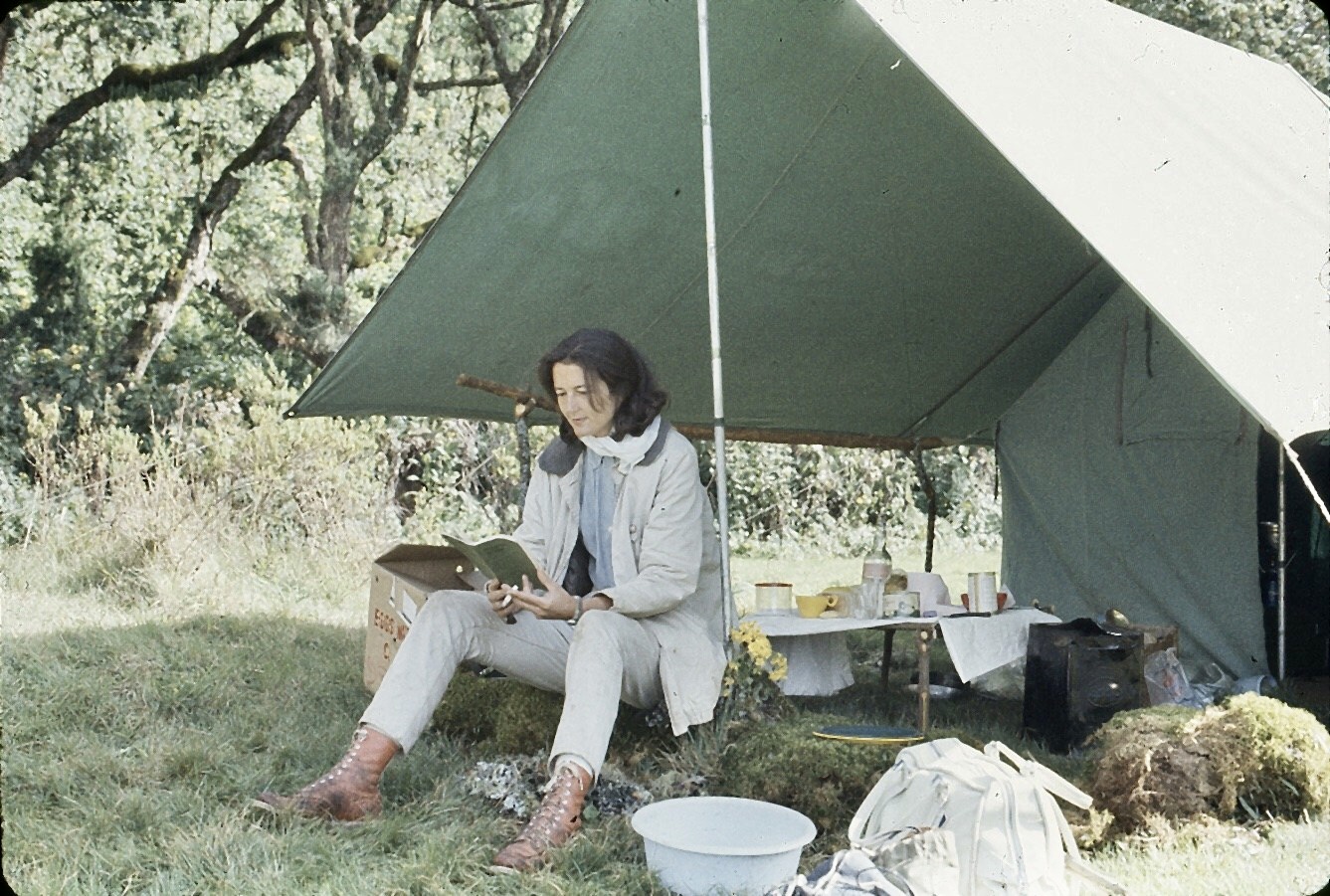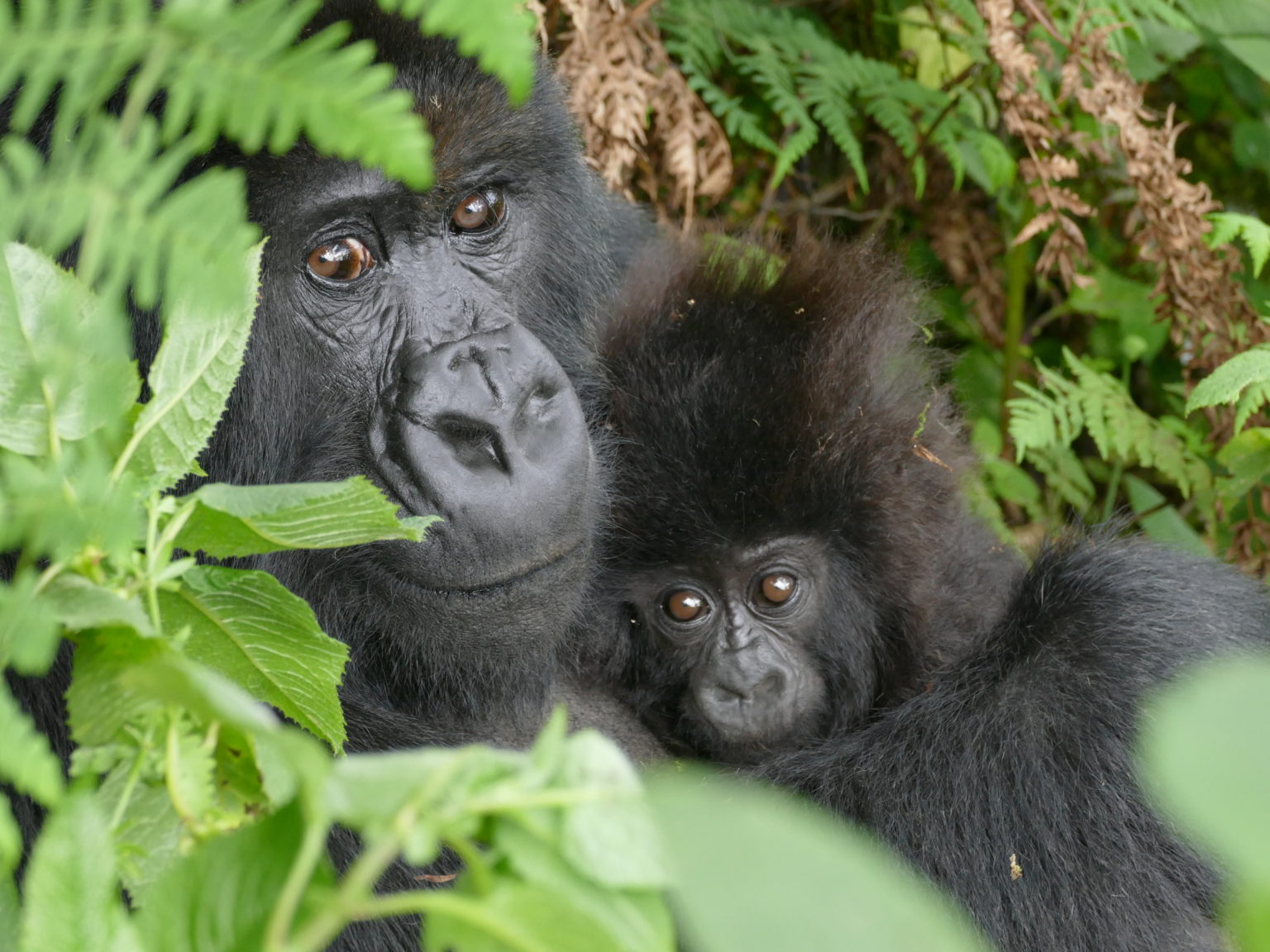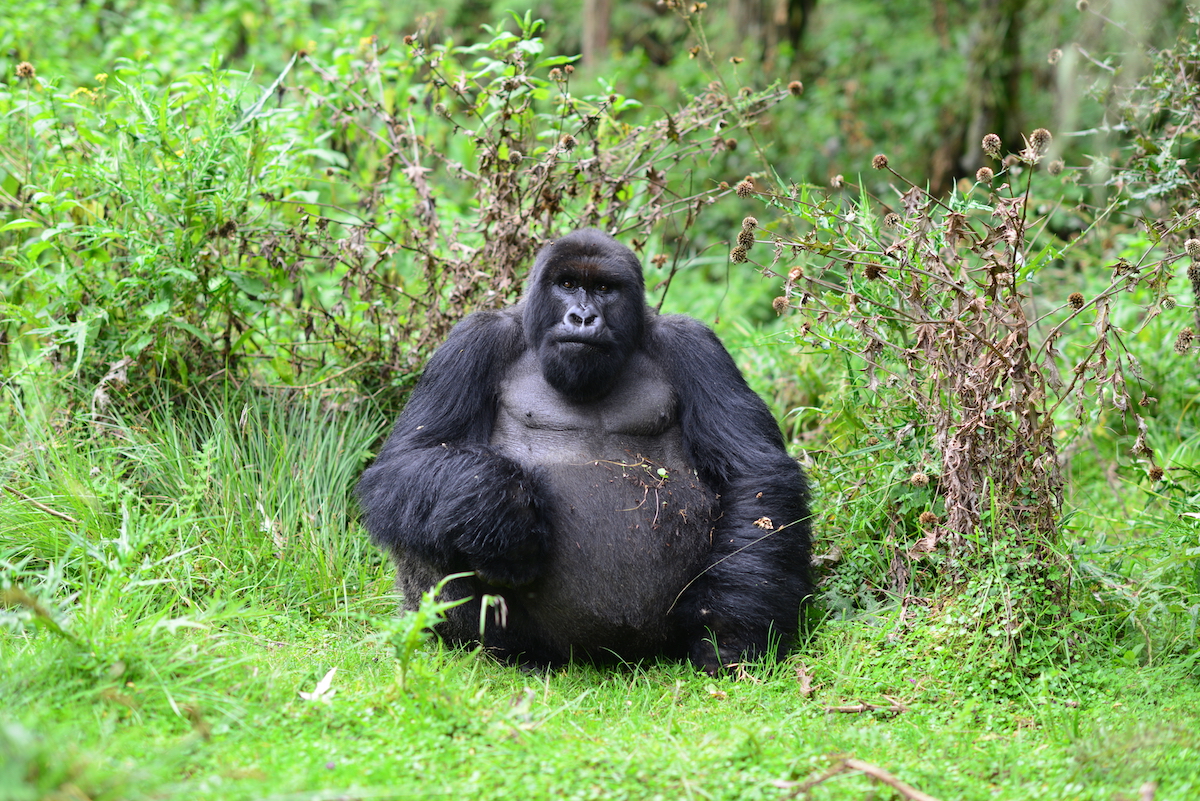Today is World Gorilla Day. Established in 1967 to commemorate the 50th anniversary of the work of the Dian Fossey Gorilla Fund, the special occurrence marks the day she set up her two tents and began groundbreaking mountain gorilla research in the forests of Rwanda.
Now, on the Fossey Fund’s 55th anniversary, mountain gorillas are rebounding from the brink of extinction. Unfortunately though, the biodiversity of the planet is under threat like never before. Climate change is accelerating, forest loss is increasing, and we are witnessing the sixth great mass extinction of species.
Since the first World Gorilla Day, the Fossey Fund has significantly stepped up efforts to protect and preserve gorillas and their forest habitats, and support the livelihoods of people in surrounding communities. It is also the world’s oldest and largest continuously operating project focused on gorillas and has one of the largest scientific databases on any species.
Today, the Fossey Fund protects almost 600,000 acres of some of the earth’s most biodiverse forests, which contain an estimated quarter billion tons of carbon and are critical in fighting climate change.
The Fossey Fund is proud to announce the following growth of its programs, facilities, and impact since the organization’s last milestone anniversary:
Fossey Fund five-year highlights:
-
Assisting with the direct protection and the continued increase in the mountain gorilla population and an improvement of conservation status from critically endangered to endangered in 2018. Mountain gorillas are the only ape whose numbers are not declining.
-
Doubling the number of staff in Africa, to nearly 300, two-thirds of whom are trackers and researchers protecting and studying gorillas and the surrounding biodiversity 365 days a year.
-
Expanding the area of protection for Grauer’s gorillas in the Democratic Republic of the Congo by 250%, to nearly 2,400 square kilometers.
-
Opening the 12-acre Ellen DeGeneres Campus, the Fossey Fund’s first purpose-built and permanent home in Rwanda, designed to accelerate scientific research, train the next generation of conservationists, and conduct on-the-ground conservation.
-
Addressing inequity in academic research by substantially increasing African leadership of scientific studies and publications and tripling the number of African researchers on staff.
-
Investing in communities in Rwanda and DR Congo through education, food and water security, and livelihoods projects that impact more than 30,000 people.






